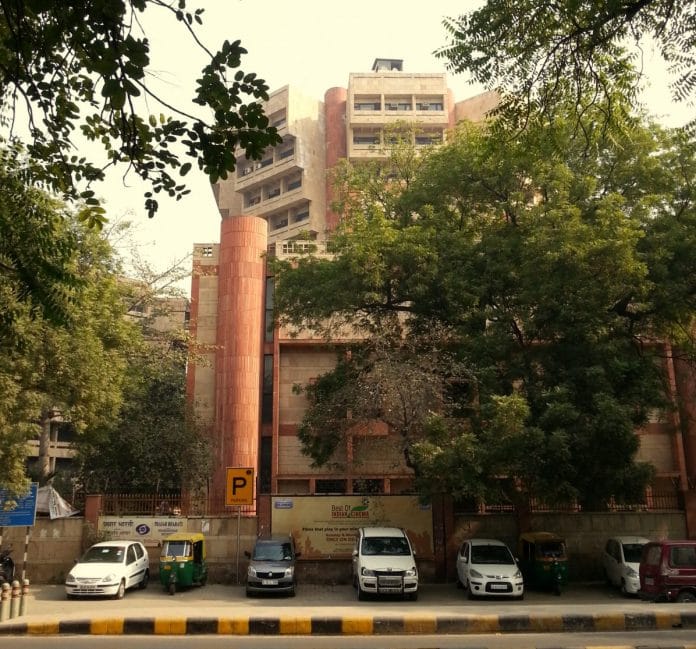Former and serving officers say public broadcast entity was never free of government control.
New Delhi: The Modi government is looking to disband Prasar Bharati on the ground that it has been “ineffective” as a public service broadcaster.
It is exploring new models to run the two bodies under it — Doordarshan (DD) and All India Radio (AIR) — including converting them into public sector companies after 2019, ThePrint reported Tuesday.
But officials, both serving and former, questioned if successive governments ever allowed the body to be truly autonomous and effective.
A senior Prasar Bharati official told ThePrint that successive governments never implemented several provisions of The Prasar Bharati (Broadcasting Corporation of India) Act, 1990, which, at least on paper, should have left the public broadcast entity free of government control.
For instance, the act mandates that Prasar Bharati should have a recruitment board to make appointments but that never happened. “As a result, recruitments continue to be looked after by the existing Prasar Bharati board,” said the official who spoke on condition of anonymity.
Another official said that the public broadcaster was never supposed to be a substitute for directorates for the two bodies under it — Doordarshan (DD) and All India Radio (AIR).
“Prasar Bharati is not supposed to look after the finances of DD, AIR or to choke them,” the official said, referring to the charges that the public broadcaster had relegated itself to daily financial control of DD and AIR and has been accused of delaying the release of crucial funds time and again.
Former Prasar Bharati CEO Jawhar Sircar told ThePrint that the proposal of doing away with Prasar Bharati is questionable from the legal point of view. “Prasar Bharati Act is not an act of charity. The proposal is akin to crippling a healthy boy and then asking why it has not been able to act like a healthy boy,” he said.
“Successive bureaucrats have felt that they were doing Prasar Bharati a huge favour, and it has thus seen the worst form of bureaucratic interference. It’s a terrible proposition to make DD and AIR PSUs as it will bring them under the direct control of the government,” Sircar said.
Former I&B minister Manish Tewari, however, said he agrees with the committee of secretaries, which had called for Prasar Bharati to be done away with.
“Prasar Bharati was the conflicted child of the liberalisation of India’s broadcasting space. The act was made in 1990 when DD was the only channel. But in 1992, the skies were opened up to Indian private channels,” he said, adding that the by 1997, the situation of the Indian broadcasting space had changed.
“The question that needs to be asked is if a public broadcaster is needed. The deeper structural issue will have to be looked at. If yes, it should be accountable to a parliamentary committee, as mentioned in the act,” he said.
He added the funding will have to be appropriated and can’t be routed through I&B ministry. “There is an inherent contradiction in the act. Accountability and autonomy can’t go together,” he said.
Multiple recommendations, none heeded
There have been several attempts to reform public broadcasting, with a number of committees tasked with the process, advocating one important aspect — ensuring autonomy for DD and AIR.
The call for autonomy for both bodies was first proposed by the Ashok Chanda Committee in 1964. The ‘Committee on Broadcasting and Information Media’ had emphasised that broadcasting cannot flourish under departmental rules and regulations and had recommended an institutional change to free AIR from the government processes.
The committee had also recommended creating two autonomous corporations for running radio and TV.
Subsequently, the Verghese committee set up after the Emergency in 1975, had emphasised the autonomy of the public corporation and its independence from government control be entrenched in the Constitution.
Other committees, such as the Nitesh Sengupta committee and the Shunu Sen committee set up in 1995 and 2000 respectively, had also championed autonomy for India’s public service broadcasters.
While the Sengupta committee recommended decentralisation and handing more power to regional stations to work independently, the Sen committee said a public service broadcaster must be completely independent in three key areas — structure, financing, and personnel policies. It had opposed any kind of deputation to Prasar Bharati stating that they were against the principle of autonomy.
The latest, the Sam Pitroda committee of 2014, had recommended diversifying the funding sources of Prasar Bharati and opening doors for private investment. The committee advocated increasing Prasar Bharati’s autonomy, noting that the act itself hinders the independence of the public broadcaster. For instance, it pointed out, several rule-making powers of Prasar Bharati require government approval.







The external services of AIR need to be changed drastically. Most countries have scaled down or discontinued the shortwave services. DRM has failed before its take off. Neither India, nor its neighbors have the expensive radios meant to receive DRM. FM is the only mode, which is popular these days. For example the most heard frequency of the Urdu Service of All India Radio is 103.6 FM put out from Amritsar. It has more listeners than all the shortwave transmitters combined together. But it has been discontinued recently and replaced by the Primary Service of All India Radio Jalandhar using the same transmitter. This is the negation of external services. If we choose to neglect our most problematic neighbor, then whom do we want to cover. Similarly Punjabi is spoken by 50% of the population of Pakistan, but its programming is woefully inadequate.